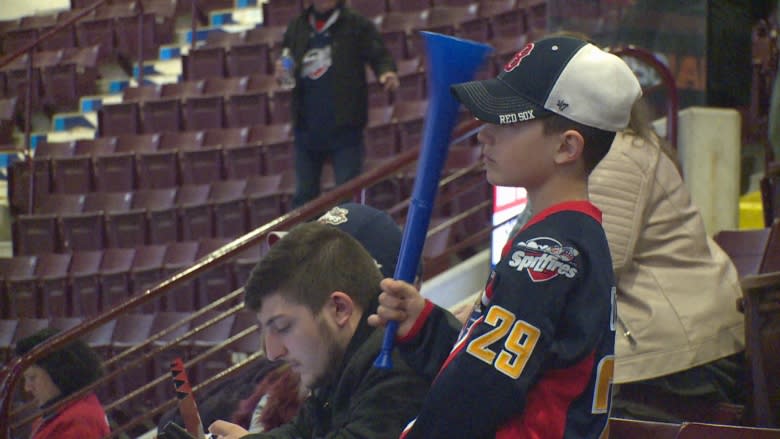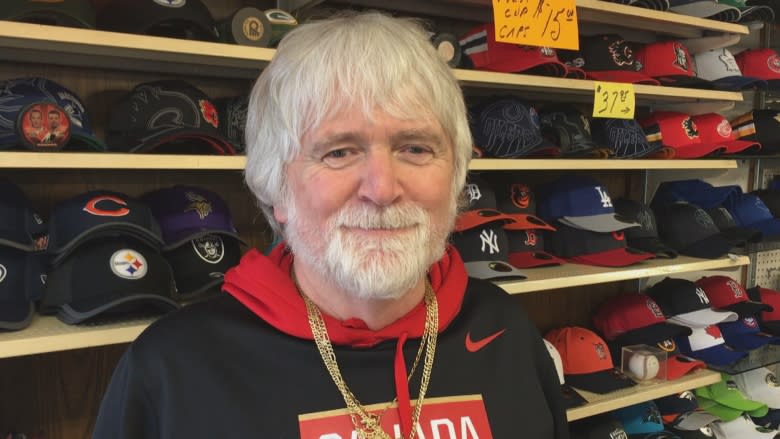Windsor Spitfires' empty seats could point to generational trends
Some theories are starting to emerge about why the Windsor Spitfires are struggling to fill the seats, despite coming off a Memorial Cup win last season and featuring a star local goalie.
Spitfires general manager and part-owner Warren Rychel complained Monday — the day after his team was knocked out of the Ontario Hockey League playoffs — about poor attendance at games and said it was hard to figure out.
On Sunday, 2,300 fans showed up to watch a playoff game between the Spitfires and the Sarnia Sting — meaning the rink was only about one third full.
"I know the kids asked me 'We're playing good, why don't the fans come out?' It's been disappointing," he said after the game.
The fact it was Easter Sunday may have been a factor, but attendance at the WFCU Centre for junior hockey has been trending downward all season.
And Rychel also pointed out attendance has been dropping steadily in recent years. The Spits used to consistently finish third in crowd numbers behind London and Kitchener, but in recent seasons they've been passed by several teams.
Jess Dixon teaches sport management in the department of kinesiology at the University of Windsor and is also a Spitfires season ticket holder. He said there's a trend of lower attendance at many sports events, including even for professional sports leagues.
"Particularly the millennials, you know the people who are gonna be driving ticket sales for the next 30 years, 40 years. They're not necessarily engaging in sport the same way that they were in our generation and the generation before us," said Dixon.
Dixon said the rising popularity of e-sports, video games, and televised events are keeping young people from attending games.
Hear more from Dixon on CBC's Windsor Morning:
"For me anyway, it seems like a foreign concept, but to the people who grew up in that generation, that's part of what they do. It's a different consumer," he said.
Bob Reaume owns the sporting good store Bob Reaume Sports. He agrees that the televised games may mean more people watch from home, but he said his customers have a variety of reasons for not going.
"How much it costs to go to a game, how much it costs once you're in the building. To eat, drink, whatever in the building is on par with going to a pro game in Detroit," said Reaume.
"And then the parking. The walk you have to do from either the side lot there or within the parking lot, the back of the parking lot, but then there's just not enough spots."




